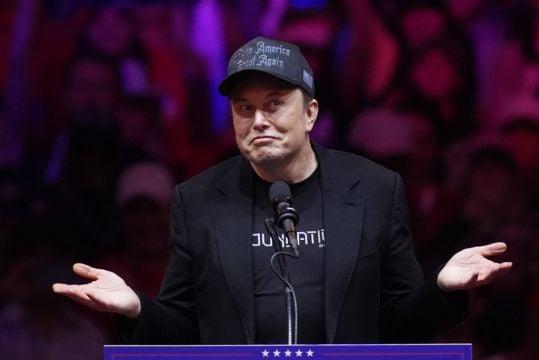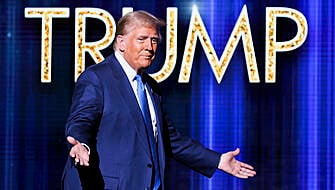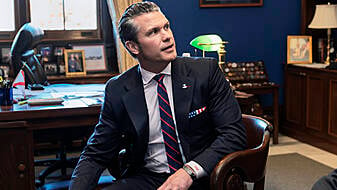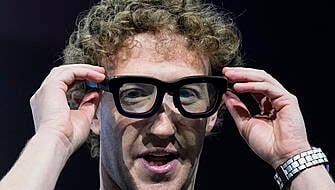The district attorney of Philadelphia has filed a lawsuit to halt Elon Musk’s million-dollar giveaways as part of his political organisation’s effort to boost Donald Trump’s presidential campaign.
The suit by Democratic district attorney Larry Krasner is the first legal action to be brought over the America PAC’s sweepstakes offering $1 million (€920,000) every day until November 5th to a person in a battleground state who has signed a petition supporting the Constitution.
Mr Krasner’s office said the lawsuit, coming just over a week before election day, does not preclude potential criminal action.
“The Philadelphia district attorney is charged with protecting the public from public nuisances and unfair trade practices, including illegal lotteries.
“The DA is also charged with protecting the public from interference with the integrity of elections,” Mr Krasner’s office said in a statement published on its website.
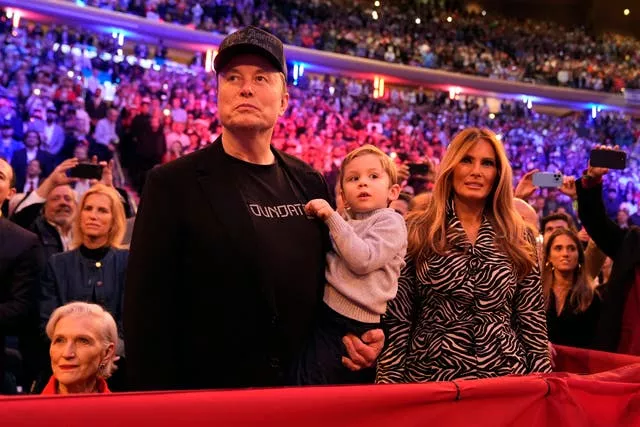
A spokesperson for the billionaire tech mogul’s America PAC, emailed for comment on the lawsuit and asked if the cash awards would continue, responded with a link to an X post, which showed the latest million-dollar winner holding an oversized cheque.
Mr Krasner’s office did not immediately respond to questions about the lawsuit, including whether it compels Mr Musk to immediately stop the giveaways or whether the dispute can be resolved before election day.
Reflecting the state’s importance in the election, both Kamala Harris and Mr Trump have made numerous recent visits to Pennsylvania, including Mr Trump’s photo op at a suburban Philadelphia McDonald’s and Ms Harris’s Sunday visit in the city that included stops at a church and a barber’s shop.
Speaking in Delaware after casting his ballot on Monday, US president Joe Biden called the giveaway “totally inappropriate”.
Mr Musk’s giveaway requires entrants to sign a petition backing the First and Second Amendments of the Constitution and calls for them to serve as spokespeople for the organisation as a condition of winning.
The awards have carried on after election law experts raised questions that it violates federal law barring anyone from paying a person to vote or register to vote.
The issue, they say, is that winning the award requires contestants to be registered to vote in one of a handful of battleground states. Mr Musk has cast the money as both a prize as well as earnings for work as a spokesperson for the group.
In his statement announcing the lawsuit, Mr Krasner characterised the million-dollar prize as a “lottery”, which would make it more heavily regulated than if it were a prize or work-related.
Brought in Pennsylvania court, Mr Krasner’s suit does not directly apply to the other swing states whose residents are eligible for the million dollars.
Mr Musk, who founded SpaceX and Tesla and owns X, formerly Twitter, has gone all in on Mr Trump for the election, saying he thinks civilisation is at stake if he loses.
He is undertaking much of the get-out-the-vote effort for Mr Trump through his super PAC, which can raise and spend unlimited sums of money.
He has committed more than $70 million to the super PAC to help Mr Trump and other Republicans win in November.
